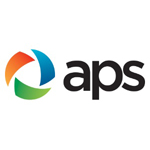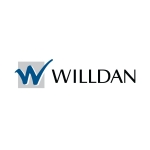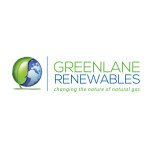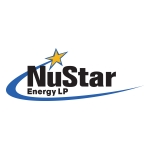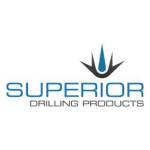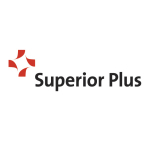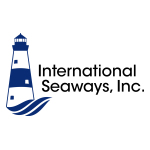SANTA CLARITA, Calif.--(BUSINESS WIRE)--California Resources Corporation (NYSE: CRC), an independent California-based oil and natural gas exploration and production company, today reported fourth quarter and full year 2020 results. Operational and financial highlights were as follows:
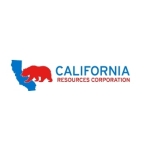
2020 Fourth Quarter and Full Year Highlights
-
For the full year of 2020, CRC reported net income of $1,871 million and an adjusted net loss attributable to common stock1 of $257 million, excluding unusual and infrequent items primarily related to CRC’s bankruptcy proceedings and asset impairments
-
For the full year of 2020, reported net cash provided by operating activities of $106 million while generating free cash flow1 of $172 million, excluding $113 million of one time bankruptcy related fees
-
For the full year of 2020, reported adjusted EBITDAX1 of $489 million with an adjusted EBITDAX margin1 of 28%
-
For the fourth quarter of 2020, produced an average of 103,000 net barrels of oil equivalent (BOE) per day, including 63,000 barrels per day of oil and an average of 111,000 net BOE per day, including 69,000 barrels per day of oil for the full year 2020
-
Exited 2020 with an average daily net production of 102,000 BOE per day, including 63,000 barrels per day of oil
-
Decreased operating costs, on a per BOE basis, by 19% to $15.45 in 2020 from $19.16 in 2019
-
Published third annual Sustainability Report showcasing positive progress on CRC's 2030 Sustainability Goals and secured a top score at CDP’s Leadership Level
-
Completed a financial restructuring and emerged from Chapter 11 bankruptcy with a simplified balance sheet and ample liquidity
Other Highlights
-
In January 2021, CRC further simplified its balance sheet by completing an offering of $600 million of 7.125% senior unsecured notes due 2026. The net proceeds of $590 million were used to repay in full CRC's Second Lien Term Loan and senior secured notes issued by its subsidiary Elk Hills Power, LLC. The remaining proceeds were used to pay down a portion of CRC's Revolving Credit Facility
-
Consistent with the Company’s new strategic direction and low-cost operator focus, CRC has implemented a number of personnel-related cost reduction initiatives to further optimize its organizational structure. Excluding one-time severance charges, these personnel related changes are expected to reduce the compensation expense component of CRC’s 2021 operating expenses by approximately $15 million per year and general and administrative expenses by approximately $50 million per year from its 2020 levels
Mac McFarland, CRC's Chairman and Interim Chief Executive Officer, commented, "We continued our strategic repositioning efforts, making progress on sustainable cost reductions and resuming prudent capital and maintenance spending. CRC will host a Strategy Day on March 18, 2021, and we look forward to providing further details of our full-scale business review and our strategic re-alignment at that time."
Fresh Start Accounting and Predecessor and Successor Periods
Upon emergence from Chapter 11 bankruptcy proceedings on October 27, 2020, CRC adopted and applied the relevant guidance with respect to the accounting and financial reporting for entities that have emerged from bankruptcy proceedings. Under fresh start accounting, the reorganized entity is considered a new reporting entity. CRC applied fresh start accounting as of October 31, 2020, an accounting convenience date, and the reorganization value of the emerging entity was assigned to individual assets and liabilities based on their estimated relative fair values. As such, fresh start accounting was reflected on the Company's consolidated balance sheet as of October 31, 2020. As a result of the application of fresh start accounting and the effects of the implementation of the Plan of Reorganization, the financial statements after October 31, 2020 may not be comparable to the financial statements prior to that date. References to "Predecessor” refer to the Company for periods ended on or prior to October 31, 2020 and references to “Successor” refer to the Company for periods subsequent to October 31, 2020.
Fourth Quarter 2020 Results
|
|
Fourth Quarter
|
|
|
Successor
|
|
|
Predecessor
|
|
|
Combined
(Non-GAAP)
|
|
|
Predecessor
|
($ and shares in millions, except per share amounts)
|
|
2020
|
|
|
2020
|
|
|
2020
|
|
|
2019
|
|
|
|
|
|
|
|
|
|
|
|
|
Statements of Operations:
|
|
|
|
|
|
|
|
|
|
|
|
Revenues
|
|
|
|
|
|
|
|
|
|
|
|
Total revenues
|
|
152
|
|
|
|
149
|
|
|
|
301
|
|
|
|
610
|
|
|
|
|
|
|
|
|
|
|
|
|
|
Costs and Other
|
|
|
|
|
|
|
|
|
|
|
|
Total costs and other
|
|
258
|
|
|
|
151
|
|
|
|
409
|
|
|
|
508
|
|
|
|
|
|
|
|
|
|
|
|
|
|
Operating (loss) income
|
|
(106)
|
|
|
|
(2)
|
|
|
|
(108)
|
|
|
|
102
|
|
|
|
|
|
|
|
|
|
|
|
|
|
Net (Loss) Income Attributable to Common Stock
|
|
$
|
(123)
|
|
|
|
$
|
3,985
|
|
|
|
$
|
3,862
|
|
|
|
$
|
(67)
|
|
Net (loss) income attributable to common stock per share - diluted 1
|
|
$
|
(1.48)
|
|
|
|
$
|
80.20
|
|
|
|
$
|
—
|
|
|
|
$
|
(1.36)
|
|
Adjusted net income (loss)1
|
|
$
|
28
|
|
|
|
$
|
(20)
|
|
|
|
$
|
8
|
|
|
|
$
|
36
|
|
Adjusted net income (loss) per share - diluted1
|
|
$
|
0.34
|
|
|
|
$
|
(0.40)
|
|
|
|
$
|
—
|
|
|
|
$
|
0.73
|
|
Weighted-average common shares outstanding - diluted
|
|
83.3
|
|
|
|
49.5
|
|
|
|
—
|
|
|
|
49.2
|
|
Adjusted EBITDAX1
|
|
$
|
83
|
|
|
|
$
|
33
|
|
|
|
$
|
116
|
|
|
|
$
|
308
|
|
|
|
|
|
|
|
|
|
|
|
|
|
|
|
Fourth Quarter
|
|
|
Successor
|
|
|
Predecessor
|
|
|
Combined
(Non-GAAP)
|
|
|
Predecessor
|
($ in millions)
|
|
2020
|
|
|
2020
|
|
|
2020
|
|
|
2019
|
Cash Flow Data:
|
|
|
|
|
|
|
|
|
|
|
|
Net cash (used) provided by operating activities
|
|
$
|
(12)
|
|
|
|
$
|
(23)
|
|
|
|
$
|
(35)
|
|
|
|
$
|
136
|
|
Net cash used by investing activities
|
|
$
|
(7)
|
|
|
|
$
|
(2)
|
|
|
|
$
|
(9)
|
|
|
|
$
|
(103)
|
|
Net cash (used) provided by financing activities
|
|
$
|
(156)
|
|
|
|
$
|
106
|
|
|
|
$
|
(50)
|
|
|
|
$
|
(38)
|
|
Full Year 2020 Results
|
|
Total Year
|
|
|
Successor
|
|
|
Predecessor
|
|
|
Combined
(Non-GAAP)
|
|
|
Predecessor
|
($ and shares in millions, except per share amounts)
|
|
2020
|
|
|
2020
|
|
|
2020
|
|
|
2019
|
|
|
|
|
|
|
|
|
|
|
|
|
Statements of Operations:
|
|
|
|
|
|
|
|
|
|
|
|
Revenues
|
|
|
|
|
|
|
|
|
|
|
|
Total revenues
|
|
152
|
|
|
|
1,407
|
|
|
|
1,559
|
|
|
|
2,634
|
|
|
|
|
|
|
|
|
|
|
|
|
|
Costs and Other
|
|
|
|
|
|
|
|
|
|
|
|
Total costs and other
|
|
258
|
|
|
|
3,186
|
|
|
|
3,444
|
|
|
|
2,205
|
|
|
|
|
|
|
|
|
|
|
|
|
|
Operating (loss) income
|
|
(106)
|
|
|
|
(1,779)
|
|
|
|
(1,885)
|
|
|
|
429
|
|
|
|
|
|
|
|
|
|
|
|
|
|
Net (Loss) Income Attributable to Common Stock
|
|
$
|
(123)
|
|
|
|
$
|
1,889
|
|
|
|
$
|
1,766
|
|
|
|
$
|
(28)
|
|
|
|
|
|
|
|
|
|
|
|
|
|
Net (loss) income attributable to common stock per share - diluted
|
|
$
|
(1.48)
|
|
|
|
$
|
40.42
|
|
|
|
$
|
—
|
|
|
|
$
|
(0.57)
|
|
Adjusted net income (loss)1
|
|
$
|
28
|
|
|
|
$
|
(285)
|
|
|
|
$
|
(257)
|
|
|
|
$
|
70
|
|
Adjusted net income (loss) per share - diluted1
|
|
$
|
0.34
|
|
|
|
$
|
(2.98)
|
|
|
|
$
|
—
|
|
|
|
$
|
1.40
|
|
Weighted-average common shares outstanding - diluted
|
|
83.3
|
|
|
|
49.6
|
|
|
|
—
|
|
|
|
49.2
|
|
Adjusted EBITDAX1
|
|
$
|
83
|
|
|
|
$
|
406
|
|
|
|
$
|
489
|
|
|
|
$
|
1,142
|
|
|
|
Total Year
|
|
|
Successor
|
|
|
Predecessor
|
|
|
Combined
(Non-GAAP)
|
|
|
Predecessor
|
($ in millions)
|
|
2020
|
|
|
2020
|
|
|
2020
|
|
|
2019
|
Cash Flow Data:
|
|
|
|
|
|
|
|
|
|
|
|
Net cash (used) provided by operating activities
|
|
$
|
(12)
|
|
|
|
$
|
118
|
|
|
|
$
|
106
|
|
|
|
$
|
676
|
|
Net cash used by investing activities
|
|
$
|
(7)
|
|
|
|
$
|
(30)
|
|
|
|
$
|
(37)
|
|
|
|
$
|
(394)
|
|
Net cash (used) provided by financing activities
|
|
$
|
(156)
|
|
|
|
$
|
98
|
|
|
|
$
|
(58)
|
|
|
|
$
|
(282)
|
|
Review of Operating and Financial Results
Total daily net production volumes decreased 16% from 123,000 BOE per day for the fourth quarter of 2019 to 103,000 BOE per day for the fourth quarter of 2020. The decrease from the same prior-year period over CRC's low to mid-teens natural decline rate was primarily due to 2,000 BOE per day of shut-in production driven by the collapse in commodity prices and power outages, lower capital investment, and reduction of well repair work. On an annual basis, total daily net production volumes decreased 13% year-over-year, from 128,000 BOE per day in 2019 to 111,000 BOE per day in 2020. The decrease from the same prior-year period was primarily due a reduced capital program, approximately 3,000 BOE per day of shut-in production, the full year impact of the Lost Hills divestiture and reduction of well repair work. Production sharing contracts in our Long Beach assets increased CRC's share of oil production by approximately 2,100 and 2,700 barrels per day in the fourth quarter and full year of 2020 compared to the same prior-year periods, respectively. CRC exited 2020 with average daily net production of 102,000 BOE per day, including 63,000 barrels per day of oil. See Attachment 2 for further information on production information.
Realized crude oil prices, including the effect of settled hedges, decreased by $25.82 per barrel from $70.21 in the fourth quarter of 2019 to $44.39 per barrel in the fourth quarter of 2020. On an annual basis, realized crude oil prices, including the effect of settled hedges, decreased by $25.12 per barrel from $68.65 in 2019 to $43.53 per barrel. Brent realized prices were lower in 2020 compared to the same prior-year period due to the combination of the supply increase caused by the Saudi-Russia price war that began earlier in the year and the continuation of severe demand decline caused by shelter-in-place orders related to the COVID-19 pandemic. Nevertheless, in 2020, CRC's oil realizations continued to favorably benefit from Brent linked pricing as compared to other U.S. benchmarks. See Attachment 5 for further information on realizations.
Adjusted EBITDAX1 for the fourth quarter of 2020 was $116 million and cash used in operating activities was $35 million. On an annual basis, adjusted EBITDAX1 was $489 million and cash provided by operating activities was $106 million. For the fourth quarter of 2020, free cash flow1 was ($6) million, excluding $39 million of one-time costs incurred relating to CRC's bankruptcy, after taking into account CRC's internally funded capital of $10 million. For the full year, free cash flow1 was $172 million, excluding $113 million of one-time bankruptcy related fees, after taking into account CRC's internally funded capital of $47 million.
FREE CASH FLOW
|
|
|
|
|
|
|
|
|
|
|
|
|
|
|
|
|
|
|
|
|
|
Management uses free cash flow, which is defined by us as net cash provided by operating activities less capital investments, as a measure of liquidity. The following table presents a reconciliation of our net cash provided by operating activities to free cash flow. We have excluded one-time costs for legal and professional fees related to our bankruptcy proceedings during 2020 as a supplemental measure of our free cash flow.
|
|
|
|
|
|
|
|
|
|
|
|
|
|
Fourth Quarter
|
|
Total Year
|
|
|
Combined
(Non-GAAP)
|
|
|
Predecessor
|
|
Combined
(Non-GAAP)
|
|
|
Predecessor
|
($ millions)
|
|
2020
|
|
|
2019
|
|
2020
|
|
|
2019
|
|
|
|
|
|
|
|
|
|
|
|
Net cash provided by operating activities
|
|
$
|
(35)
|
|
|
|
$
|
136
|
|
|
$
|
106
|
|
|
|
$
|
676
|
|
Capital investments
|
|
(10)
|
|
|
|
(62)
|
|
|
(47)
|
|
|
|
(455)
|
|
Free cash flow1
|
|
(45)
|
|
|
|
74
|
|
|
59
|
|
|
|
221
|
|
BSP funded capital
|
|
—
|
|
|
|
—
|
|
|
—
|
|
|
|
48
|
|
Free cash flow, after internally funded capital1
|
|
$
|
(45)
|
|
|
|
$
|
74
|
|
|
$
|
59
|
|
|
|
$
|
269
|
|
Professional fees related to our bankruptcy
|
|
39
|
|
|
|
—
|
|
|
113
|
|
|
|
—
|
|
Free cash flow, excluding professional fees related to our bankruptcy1
|
|
$
|
(6)
|
|
|
|
$
|
74
|
|
|
$
|
172
|
|
|
|
$
|
269
|
|
|
|
|
|
|
|
|
|
|
|
|
Operating costs for the fourth quarter of 2020 were $165 million, compared to $211 million for the fourth quarter of 2019. For the full year 2020, operating costs were $625 million, compared to $895 million in 2019. The decrease was primarily due to efficiencies and streamlining of operations, reduced operating costs from shut-in wells as well as lower activity levels, such as downhole maintenance. Operating costs per BOE are presented below:
OPERATING COSTS PER BOE
|
|
|
|
|
|
|
|
|
|
|
|
The reporting of our PSC-type contracts creates a difference between reported operating costs, which are for the full field, and reported volumes, which are only our net share, inflating the per barrel operating costs. The following table presents operating costs after adjusting for the excess costs attributable to PSC-type contracts.
|
|
|
|
|
|
|
|
|
|
|
|
|
|
Fourth Quarter
|
|
Total Year
|
|
|
Combined
(Non-GAAP)
|
|
|
Predecessor
|
|
Combined
(Non-GAAP)
|
|
|
Predecessor
|
($ per Boe)
|
|
2020
|
|
|
2019
|
|
2020
|
|
|
2019
|
Operating costs
|
|
$
|
17.42
|
|
|
|
$
|
18.67
|
|
|
$
|
15.45
|
|
|
|
$
|
19.16
|
|
Excess costs attributable to PSC-type contracts
|
|
(1.13)
|
|
|
|
(1.35)
|
|
|
(0.89)
|
|
|
|
(1.46)
|
|
Operating costs, excluding effects of PSC-type contracts
|
|
$
|
16.29
|
|
|
|
$
|
17.32
|
|
|
$
|
14.56
|
|
|
|
$
|
17.70
|
|
|
|
|
|
|
|
|
|
|
|
|
G&A expenses were $59 million for the fourth quarter of 2020, compared to $62 million in the same prior-year period. For the full year of 2020, G&A expenses were $252 million, compared to $290 million in 2019. The decrease in G&A expenses resulted from workforce reductions, cost saving efforts and a decline in spending across a number of cost categories. These savings were partially offset by the cost of obtaining additional directors and officers insurance related to the Chapter 11 cases, lower capitalized salary costs as a result of suspending the capital program beginning in March 2020 as well a slight increase in employee incentive awards due to changes to the variable portion of the incentive compensation program in May 2020, which had the effect of increasing CRC's cash-settled awards to target and achieving a higher target payout on performance metrics.
CRC reported taxes other than on income of $23 million for the fourth quarter of 2020, compared to $38 million for the same prior-year period. For the full year of 2020, CRC reported taxes other than on income of $144 million, compared to $157 million in 2019. The decrease primarily resulted from reduced emissions in 2020 as compared to 2019 due to lower activity levels, including shut-in wells, and better than expected market pricing on the purchase of greenhouse gas emissions credits. Exploration expense was $2 million and $11 million for the fourth quarter of 2020 and for the whole year, respectively, mostly due to limited exploration activity in 2020 as a result of the lower commodity price environment.
Total internally funded capital invested during the fourth quarter of 2020 was $10 million. For the full year of 2020, total capital invested was $140 million, of which $47 million was internally funded by CRC. CRC's JV partners Macquarie Infrastructure and Real Assets Inc. (MIRA) and Alpine Energy Capital, LLC (Alpine) invested an additional $1 million and $92 million, respectively, which are excluded from CRC's consolidated results.
Balance Sheet and Liquidity Update
In January 2021, CRC completed an offering of $600 million of 7.125% senior unsecured notes due 2026. The net proceeds of $590 million were used to repay in full the second lien term loan and all outstanding senior secured notes due 2027 issued by CRC's subsidiary Elk Hills Power, LLC, with the remaining $90 million used to pay down a portion of the Revolving Credit Facility. As of December 31, 2020, CRC had liquidity of $335 million, which consisted of $28 million in unrestricted cash and $307 million of available borrowing capacity under its Revolving Credit Facility. After giving effect to the January 2021 debt issuance discussed above, CRC would have had, on a pro forma basis, liquidity of $425 million as of December 31, 2020, which consisted of $28 million in unrestricted cash and $397 million of available borrowing capacity under its Revolving Credit Facility. As of March 01, 2021, CRC had an undrawn revolving credit facility, $125 million in letters of credit outstanding and liquidity of approximately $475 million.
Organization Changes
During the second half of 2020, CRC implemented organizational changes that resulted in a 12% reduction of overall headcount to approximately 1,100 employees. Subsequent to the quarter-end, CRC took steps to further align the cost structure with the objective to focus around core assets and cost performance. This included decisions to reduce the size of its management team and to realign several functions which resulted in further headcount and cost reductions. During the first quarter of 2021, CRC further reduced its headcount by an additional 9% to approximately 1,000 employees.
Excluding one-time severance charges, these personnel related changes are expected to reduce the compensation expense component of CRC’s 2021 operating expenses by approximately $15 million per year and general and administrative expenses by approximately $50 million per year from its 2020 levels.
Operational Update
In the fourth quarter of 2020, CRC operated no drilling rigs. The San Joaquin basin produced 74,000 net BOE per day. The Los Angeles basin produced 23,000 net BOE per day, the Ventura basin produced 3,000 net BOE per day and the Sacramento basin produced 3,000 net BOE per day.
2021 Capital Budget
CRC's capital program will be dynamic in response to oil market volatility while focusing on maintaining strong liquidity and maximizing free cash flow. The 2021 capital program will target reinvestment of approximately 50% of anticipated available cash flow from operations at current commodity prices. CRC's 2021 capital program is anticipated to be between $200 and $225 million, including approximately $40 million of mechanical integrity and midstream turnaround activities deferred from 2020 to 2021. The current plan anticipates CRC to gradually raise quarterly investment throughout the year if the commodity environment continues to strengthen. CRC will maintain the flexibility to adjust its capital program in response to declining market conditions.
Reserves
As of December 31, 2020, CRC had estimated proved reserves totaling 442 million BOE, of which 382 million BOE was proved developed and 60 million BOE was proved undeveloped. The estimated future net cash flows of our proved reserve volumes had a PV-10 value of $2.43 billion. These estimates were based on SEC pricing and the average realized prices for estimating CRC's proved reserves were $42.35 per barrel for oil, $26.42 per barrel for NGLs and $2.28 per Mcf for natural gas.
PV-10 AND STANDARDIZED MEASURE
|
|
|
|
|
The following table presents a reconciliation of the GAAP financial measure of Standardized Measure of discounted future net cash flows (Standardized Measure) to the non-GAAP financial measure of PV-10:
|
|
|
|
|
($ millions)
|
|
|
December 31, 2020
|
Standardized Measure of discounted future net cash flows
|
|
|
$
|
1,932
|
|
Present value of future income taxes discounted at 10%
|
|
|
494
|
|
PV-10 of cash flows (*)
|
|
|
$
|
2,426
|
|
|
|
|
|
(*) PV-10 is a non-GAAP financial measure and represents the year-end present value of estimated future cash inflows from proved oil and natural gas reserves, less future development and operating costs, discounted at 10% per annum to reflect the timing of future cash flows and using SEC prescribed pricing assumptions for the period. PV-10 differs from Standardized Measure because Standardized Measure includes the effects of future income taxes on future net cash flows. Neither PV-10 nor Standardized Measure should be construed as the fair value of our oil and natural gas reserves. Standardized Measure is prescribed by the SEC as an industry standard asset value measure to compare reserves with consistent pricing costs and discount assumptions. PV-10 facilitates the comparisons to other companies as it is not dependent on the tax-paying status of the entity.
|
Based on average realized prices of $55 per barrel of oil and $2.50 per Mcf for natural gas, CRC's estimated proved reserves would be 515 million BOE, including 441 million BOE of proved developed and 74 million BOE of proved undeveloped reserves. Management's internal estimate of PV-10 value at these prices would be approximately $4.75 billion2.
ESG Update
As a dependable and reliable energy producer in the State of California, in 2020, CRC maintained the highest CDP ranking among all U.S. oil and gas companies, tying for first with one other U.S.-based E&P with global operations, and released the third annual Sustainability report with expanded disclosures. Underscoring the Company's commitment to safe and responsible production, CRC's ESG performance and progress on its 2030 Sustainability Goals, which align with California’s climate goals toward carbon neutrality in accordance with the Paris Climate Accord, continue to be directly tied to the performance-based compensation of its executives, senior managers and employees. The new Board of Directors will continue to highlight, monitor and provide guidance on CRC ESG efforts, including a strong commitment to sustainability, HSE and community engagement.
Hedging Update as of February 28, 2021
CRC will utilize its hedging program to ensure strong cash flows in nearly any commodity price environment and will target approximately 80% of anticipated production. The current strategy includes a mix of swaps and options to ensure CRC’s ability to generate free cash flow and is also aligned with CRC’s reserve-based lending (RBL) requirements. See Attachment 7 for further information on CRC's current hedges.
2021 Strategy Day
On March 18, 2021, at 1 p.m. Eastern Time/10 a.m. Pacific Time, CRC will host a virtual Strategy Day to review the Company’s strategic repositioning, expected outcomes of the new strategic alignment and 2021 guidance. Participants can preregister here for the live webcast or access in the Investor Relations section of CRC.com the day of the event. A digital replay of the event will be archived for approximately 90 days and supplemental slides for the event will also be available in the Investor Relations section on www.crc.com.
| 1 See Attachment 3 for the non-GAAP financial measures of adjusted EBITDAX, adjusted EBITDAX margin, operating costs per BOE (excluding effects of PSC-type contracts), adjusted net income (loss), discretionary cash flow and free cash flow, including reconciliations to their most directly comparable GAAP measure, where applicable. |
| 2 GAAP does not prescribe a standardized measure of reserves on a basis other than SEC pricing. As such, no standardized measure of proved reserves using $55 per barrel for oil and $2.50 per Mcf for natural gas has been provided. |
About California Resources Corporation
California Resources Corporation (CRC) is an independent oil and natural gas exploration and production company, applying complementary and integrated infrastructure to gather, process and market its production. Using advanced technology, CRC focuses on safely and responsibly supplying affordable energy.
Forward-Looking Statements
The information included herein contains forward-looking statements that involve risks and uncertainties that could materially affect CRC's expected results of operations, liquidity, cash flows and business prospects. Such statements include those regarding CRC's expectations as to its future:
-
financial position, liquidity, cash flows and results of operations
-
business prospects
-
transactions and projects
-
operating costs
-
operations and operational results including production, hedging and capital investment
-
budgets and maintenance capital requirements
-
reserves
-
type curves
-
expected synergies from acquisitions and joint ventures
Actual results may differ from anticipated results, sometimes materially, and reported results should not be considered an indication of future performance. While CRC believes assumptions or bases underlying its expectations are reasonable and make them in good faith, they almost always vary from actual results, sometimes materially. CRC also believes third-party statements it cites are accurate but have not independently verified them and do not warrant their accuracy or completeness. Factors (but not necessarily all the factors) that could cause results to differ include:
-
CRC's ability to execute its business plan post-emergence
-
the volatility of commodity prices and the potential for sustained low oil, natural gas and natural gas liquids prices
-
impact of CRC's recent emergence from bankruptcy on its business and relationships
-
debt limitations on CRC's financial flexibility
-
insufficient cash flow to fund plan
Contacts
Joanna Park (Investor Relations)
818-661-3731
This email address is being protected from spambots. You need JavaScript enabled to view it.
Richard Venn (Media)
818-661-6014
This email address is being protected from spambots. You need JavaScript enabled to view it.
Read full story here 

